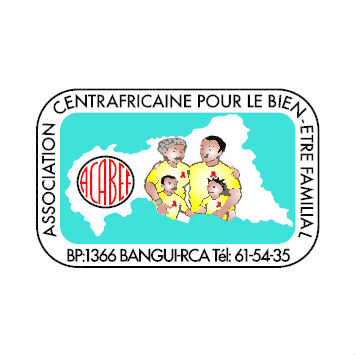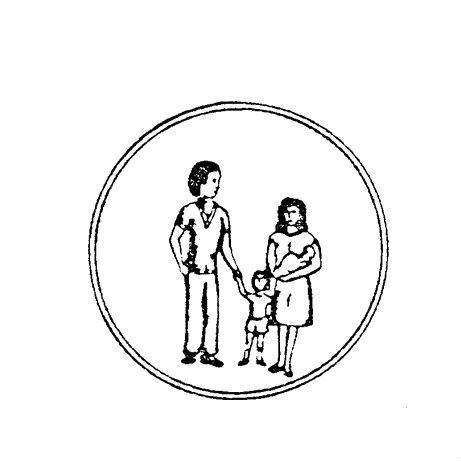

| 31 March 2016
Association Centrafricaine pour le Bien-Etre Familial
The Association Centrafricaine pour le Bien-Être Familial (ACABEF), was established in 1986 and recognised as an NGO by the Central African Government 1987. It signed a collaboration agreement with the government in 2003. Aim: To participate with the Government in creating the necessary conditions for the economic, social and cultural development of the population; To support the Government and through it the Maternal and Child Health Services; To contribute to the integration of family planning programmes into the public health system; To provide, when necessary, useful advice to relieve couples suffering from infertility and help them prevent future cases. Objectives: To increase young people's access to comprehensive, gender-sensitive sexual and reproductive health information and education; To increase young people's access to a wider range of age-appropriate services; Contribute significantly to the prevention and control of STIs/HIV/AIDS; Contribute to increasing access to psycho-social care for people infected and affected by HIV/AIDS through a dynamic partnership; To improve the access of women, men and young people to quality Sexual and Reproductive Health (SRH) services using a gender and rights based approach; To contribute to the information and reduction of unsafe abortion rates in the country; To provide care for victims of GBV. ACABEF targets: Adolescents and youth; Men and women of reproductive age Number of clinics: ACABEF has had 07 clinics since its creation, namely The model clinic in Bangui in the capital The Ouham regional branch located in Bossangoa; The Lobaye regional branch in Mbaiki; The Ouaka Regional Antenna located in Bambari. A Point of Care (PPS) in Paoua A Care Provision Point (PPS) in Bozoum A youth-friendly centre in Bangui. However, with the socio-political events that the country has experienced since 2013, some clinics in the interior of the country have been completely vandalised and destroyed by armed groups and their goods taken away. For the time being, the association only has two clinics located in Bangui and Mbaiki and a youth centre in Bangui. The Association has been offering an average of 400,000 services per year to the population for the past 3 years including: SRH and FP services in fixed and advanced clinics HIV screening and follow-up of people declared positive for psychological care Comprehensive sexual education Carrying out community-based distributions Management of VGB Infertility treatment Advocacy on SRH rights issues

| 31 March 2016
Dominica Planned Parenthood Association
Founded in 1976, the Dominica Planned Parenthood Association (DPPA) focused on providing information and education to support the government’s clinical service delivery programme in its early years. It began delivering contraceptive services in response to the significant contraceptive needs of Dominicans (particularly among adolescents), and the staffing constraints of the government programme. As a result, people could be sure of at least one inexpensive, private outlet where their family planning needs could be fully met. DPPA’s clinic is located the centre of the capital city and provides a range of services including family planning, pregnancy tests, family counselling and PAP smear screening. There’s an established community outreach programme which provides family planning through volunteers and shop owners, and an extensive programme of information and education activities. These include distributing pamphlets and posters, broadcasting short talks about family planning on radio and television and conducting community discussions. The negative effects of Dominca’s high adolescent pregnancy rate are aggravated by local practices that force pregnant girls to drop out of school permanently. To reach young people, DPPA provides sexuality and life skills education in secondary schools and to adolescents outside the school system through rap sessions, lectures, discussions and films. DPPA has also established an Under 20 Club, a teen group that trains its members as peer educators. BFLA is an associate of an umbrella organization known as the Caribbean Family Planning Affiliation Ltd (CFPA). The Caribbean Family Planning Affiliation (CFPA) is the only regional non-governmental organization (NGO) devoted to family planning and sexual and reproductive health in the Caribbean. CFPA serves 13 island Member Associations and 5 Associate Member Associations in the Caribbean, Central and South America. It supports these Associations with technical assistance and materials, and represents their collective interests at IPPF meetings and in the Caribbean region among governments and NGOs. CFPA Member Associations are located in Anguilla, Antigua, Aruba, Bahamas, Bermuda, Curacao, Dominica, Grenada, Guadeloupe, Martinique, Nevis and St. Kitts, St. Lucia and St. Vincent. CFPA Associate Member Associations are located in Belize, Barbados, Guyana, Jamaica, Suriname, and Trinidad and Tobago. The CFPA does not offer any clinical services or distribute family planning methods to clients, but rather focuses its work on governance and institution-building among its Member Associations. The CFPA oversees, manages and analyses core grants to 7 Caribbean Member Associations. The CFPA also submits project proposals for donor funding on behalf of the Associations.







